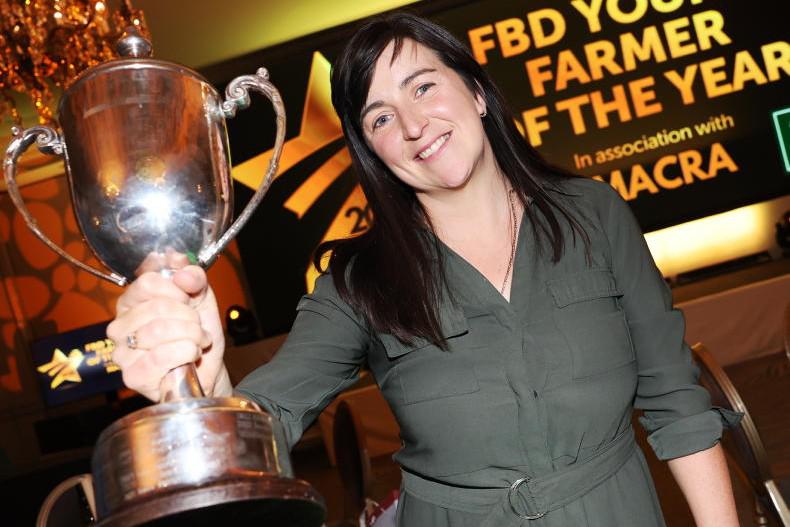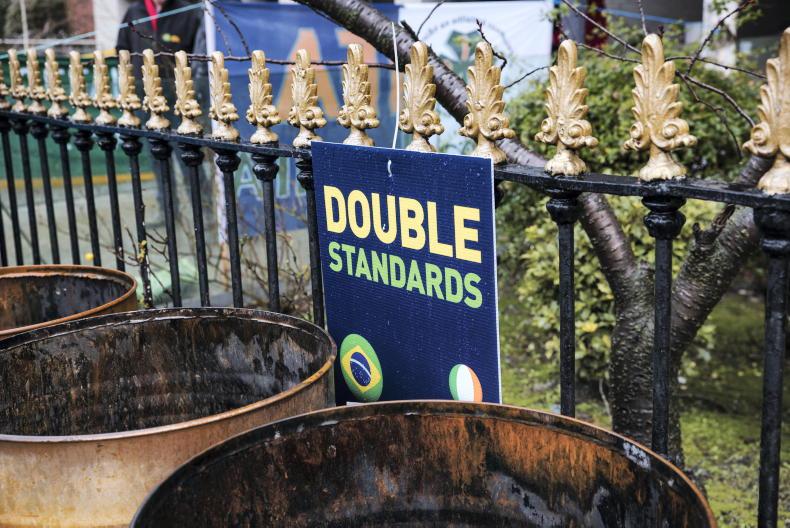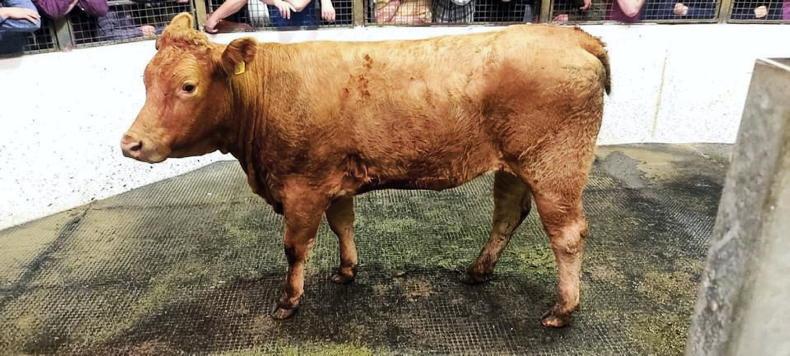Kerry Co-operative Creameries stands at a crossroads. Over the next 18 months or so, monumental decisions must be addressed.
Shorn of the shared management of the Kerry Group ceo, secretary and support staff it enjoyed for so long, the co-op must now stand on its own two feet and determine its future.
Thomas Hunter McGowan was appointed as co-op executive secretary/CFO last September, and this week gives his first major interview in that capacity. He outlines the strategic goals the board has identified for the co-op, and the initial steps that must be taken in their pursuit.
He also addresses the cases with Revenue regarding the tax treatment of the now-defunct patronage share scheme, and the arbitration process over the “thirteenth payment”.
We also carry the first major print interview with a group of shareholders who hold a diametrically opposing view to the board on the best direction for the co-op. They dominated the recent agm, calling for the wealth of the co-op to be distributed among its members.
The co-op has vast wealth. Its significant asset is its 13.7% of shareholding in Kerry Group plc, which is currently worth a cool €2.3bn. But should that money be used in part to buy agribusiness assets?
Should the sleeping giant that is Kerry Co-op, which has been slumbering since the conversion of dairy and agribusiness into a plc in 1996, become active? It could well be a volcanic eruption.
‘Don’t squander our shares’
Give shareholders the fruits of their investment
“The average farm family has €250,000 of value tied up in Kerry Co-op. The question is, how best can we help that farm family? Is it by spending the money, by buying the agribusiness assets or is it by letting them control their own destiny, and have the shares in their own drawer to sell or keep as they see fit?’’
That, in a nutshell, encapsulates the views of the Kerry Co-op Shareholders’ Alliance.
The group is so new it has just concluded the business of agreeing a name.
Individuals have been active on social media, discussion forums and at recent Kerry Co-op meetings, calling for the co-op to transfer its wealth directly to its shareholders.
However, at the recent co-op agm, it became clear that a group is emerging with a shared view as to the co-op’s best trajectory. Over two dozen of them gathered in Tralee last weekend to outline their shared perspective.
Almost all of the group are active dairy farmers. Among them are some former board members and a number of current members of the co-op’s regional advisory committees. They are utterly opposed to the co-op board’s stated intention to evolve into a trading agricultural co-op with milk processing facilities.
The group is adamant that there is no appetite among farmers for the co-op to exercise the option to purchase the agribusiness assets of Kerry Group.
“We have no capacity in the co-op to run a business – sure we’ve only one employee,” says one. “Why would we want to buy such a low-margin business?’’
Another says: ‘‘The agribusiness without the Irish dairy business would be a poor investment.
“And as for the suggestion that we ‘explore all options to work with a co-operative or milk processing company through a merger or joint venture’ (as the co-op board is suggesting) – well, that wouldn’t work at all.
‘‘The purchase of the Kerry agribusiness would involve an agreement to supply 85% of our milk to Kerry for at least seven years, so our hands would be tied.”
The view among the group is that it would be very difficult for the co-op to negotiate any worthwhile deal with Kerry Group as relations have broken down.
“How could the co-op and the plc agree a deal when they couldn’t even agree on a thirteenth payment for our milk,” one farmer put it. “Put simply, the co-op board no longer trusts Kerry Group management, while we believe a majority of co-op shareholders no longer trust the co-op board.”
The group does not accept that the co-op purchasing agri-related business will help the co-op to regain the tax shelter for the transfer of shares known as 701. One of them quoted advice provided to the co-op board by Padraig Cronin from Deloitte. “Active trading status on the part of Kerry Co-op is not a requirement to qualify for 701.”
It is accepted that it is necessary to address the number of non-farming shareholders to ensure 701 status, and the consensus is that a buyback of shareholding from “C” shareholders, at a generous price, is the best solution.
Young producers
About 500 milk suppliers have no shareholding at all. In many more cases, the bulk of the shareholding has been passed on to other family members.
One young milk producer present with no shareholding explained his perspective.
“I want a strong voice to represent me as a milk producer, and I’m prepared to pay for that representation,” he said.
‘‘A small milk levy would cover the cost of running a producer co-op. It doesn’t need all this retained wealth from a previous generation.”
A near full spin–out
“This is not an exit strategy. We are investing in our farms. A spin-out will make us more viable as farmers, both individually and collectively. The awful thing is that farmers are selling shares because of the financial pressures they are under at the moment, weakening the profile of milk producers among the co-op.
Message
One clear message from the group was its pride in Kerry Group. “Right down through the years when farmers were in trouble, Kerry Group would bend over backwards to accommodate us.”
The Kerry Co-op shareholders alliance can be contacted at KerryCoOpShares@yahoo.com
Balance sheet value on 1 January 2018: €2.3bn.Largest asset: 13.7% stake in Kerry Group plc valued today at €2.3bn. Other investments: Kerry airport (20%), Listowel racecourse (13%), Kenmare mart (12%) and IPL Plastics (formerly One51) (4.7%).Value of co-op shares: €320 on grey market today with a see-through total value of €560.Pending issues
Case to Tax Appeals Commission re patronage shares scheme: verdict likely by year-end.Arbitration on bonus ‘‘thirteenth payment’’ for milk: hearing scheduled for 3 September.Option to purchase Kerry agribusiness: must be exercised by January 2019.
Kerry Co-operative Creameries stands at a crossroads. Over the next 18 months or so, monumental decisions must be addressed.
Shorn of the shared management of the Kerry Group ceo, secretary and support staff it enjoyed for so long, the co-op must now stand on its own two feet and determine its future.
Thomas Hunter McGowan was appointed as co-op executive secretary/CFO last September, and this week gives his first major interview in that capacity. He outlines the strategic goals the board has identified for the co-op, and the initial steps that must be taken in their pursuit.
He also addresses the cases with Revenue regarding the tax treatment of the now-defunct patronage share scheme, and the arbitration process over the “thirteenth payment”.
We also carry the first major print interview with a group of shareholders who hold a diametrically opposing view to the board on the best direction for the co-op. They dominated the recent agm, calling for the wealth of the co-op to be distributed among its members.
The co-op has vast wealth. Its significant asset is its 13.7% of shareholding in Kerry Group plc, which is currently worth a cool €2.3bn. But should that money be used in part to buy agribusiness assets?
Should the sleeping giant that is Kerry Co-op, which has been slumbering since the conversion of dairy and agribusiness into a plc in 1996, become active? It could well be a volcanic eruption.
‘Don’t squander our shares’
Give shareholders the fruits of their investment
“The average farm family has €250,000 of value tied up in Kerry Co-op. The question is, how best can we help that farm family? Is it by spending the money, by buying the agribusiness assets or is it by letting them control their own destiny, and have the shares in their own drawer to sell or keep as they see fit?’’
That, in a nutshell, encapsulates the views of the Kerry Co-op Shareholders’ Alliance.
The group is so new it has just concluded the business of agreeing a name.
Individuals have been active on social media, discussion forums and at recent Kerry Co-op meetings, calling for the co-op to transfer its wealth directly to its shareholders.
However, at the recent co-op agm, it became clear that a group is emerging with a shared view as to the co-op’s best trajectory. Over two dozen of them gathered in Tralee last weekend to outline their shared perspective.
Almost all of the group are active dairy farmers. Among them are some former board members and a number of current members of the co-op’s regional advisory committees. They are utterly opposed to the co-op board’s stated intention to evolve into a trading agricultural co-op with milk processing facilities.
The group is adamant that there is no appetite among farmers for the co-op to exercise the option to purchase the agribusiness assets of Kerry Group.
“We have no capacity in the co-op to run a business – sure we’ve only one employee,” says one. “Why would we want to buy such a low-margin business?’’
Another says: ‘‘The agribusiness without the Irish dairy business would be a poor investment.
“And as for the suggestion that we ‘explore all options to work with a co-operative or milk processing company through a merger or joint venture’ (as the co-op board is suggesting) – well, that wouldn’t work at all.
‘‘The purchase of the Kerry agribusiness would involve an agreement to supply 85% of our milk to Kerry for at least seven years, so our hands would be tied.”
The view among the group is that it would be very difficult for the co-op to negotiate any worthwhile deal with Kerry Group as relations have broken down.
“How could the co-op and the plc agree a deal when they couldn’t even agree on a thirteenth payment for our milk,” one farmer put it. “Put simply, the co-op board no longer trusts Kerry Group management, while we believe a majority of co-op shareholders no longer trust the co-op board.”
The group does not accept that the co-op purchasing agri-related business will help the co-op to regain the tax shelter for the transfer of shares known as 701. One of them quoted advice provided to the co-op board by Padraig Cronin from Deloitte. “Active trading status on the part of Kerry Co-op is not a requirement to qualify for 701.”
It is accepted that it is necessary to address the number of non-farming shareholders to ensure 701 status, and the consensus is that a buyback of shareholding from “C” shareholders, at a generous price, is the best solution.
Young producers
About 500 milk suppliers have no shareholding at all. In many more cases, the bulk of the shareholding has been passed on to other family members.
One young milk producer present with no shareholding explained his perspective.
“I want a strong voice to represent me as a milk producer, and I’m prepared to pay for that representation,” he said.
‘‘A small milk levy would cover the cost of running a producer co-op. It doesn’t need all this retained wealth from a previous generation.”
A near full spin–out
“This is not an exit strategy. We are investing in our farms. A spin-out will make us more viable as farmers, both individually and collectively. The awful thing is that farmers are selling shares because of the financial pressures they are under at the moment, weakening the profile of milk producers among the co-op.
Message
One clear message from the group was its pride in Kerry Group. “Right down through the years when farmers were in trouble, Kerry Group would bend over backwards to accommodate us.”
The Kerry Co-op shareholders alliance can be contacted at KerryCoOpShares@yahoo.com
Balance sheet value on 1 January 2018: €2.3bn.Largest asset: 13.7% stake in Kerry Group plc valued today at €2.3bn. Other investments: Kerry airport (20%), Listowel racecourse (13%), Kenmare mart (12%) and IPL Plastics (formerly One51) (4.7%).Value of co-op shares: €320 on grey market today with a see-through total value of €560.Pending issues
Case to Tax Appeals Commission re patronage shares scheme: verdict likely by year-end.Arbitration on bonus ‘‘thirteenth payment’’ for milk: hearing scheduled for 3 September.Option to purchase Kerry agribusiness: must be exercised by January 2019. 







SHARING OPTIONS